The Importance of Early Childhood Education
Early childhood education, or ECE, is an important part of your child's development. Allowing your child to experience day care will get them started on the road to better learning and well-being.
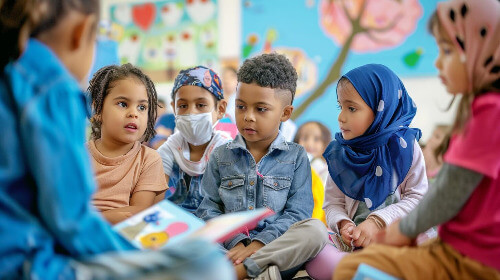 A diverse group of children in a preschool setting listening to the teacher read a book.
A diverse group of children in a preschool setting listening to the teacher read a book.You should understand what exactly ECE involves and how it benefits your child. I will explore with you the purpose, benefits, and essential aspects of an early education for your child.
Is There a Purpose for a Child to Start an Early Education?
The primary purpose of early childhood education is to support a child’s development during their early growing years.
These early years, from birth to age eight/twelve, are a period of rapid cognitive, emotional, social, and physical growth.
Starting their education at a young age allows your child to explore, play and learn skills that will support their future success. Everything your child will learn is taught through play.
Goals of Early Childhood Education:
- Helps with Cognitive Development: An early education stimulates your child’s mind with activities that promote critical thinking, problem-solving and creativity.
- Encourage Social Skills: Children learn to interact with peers and adults, developing communication, cooperation, and empathy.
- Boost Emotional Well-being: An early childhood education can help your child understand and manage their emotions.
- Support Physical Growth: Activities in ECE centers include play that enhances motor skills and overall health.
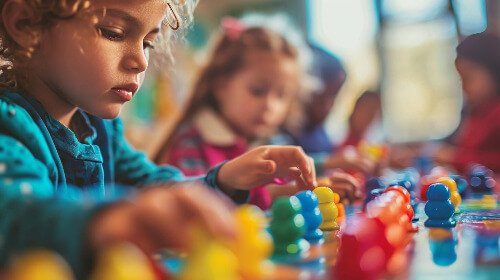 Two little girls playing with sensory toys at the table in day care.
Two little girls playing with sensory toys at the table in day care.Having an Early Childhood Education Can do Wonders for Children
Early childhood education does more than just prepare children for school. Here’s how:
Enhancing Cognitive Skills
ECE programs use various educational toys and activities to boost cognitive development.
Eg: puzzles and building blocks help with problem-solving and environmental awareness, while storytime enhances vocabulary and comprehension.
Building Social and Emotional Skills
Through group activities and play, children learn to share, take turns, and work together. This not only prepares them for the social aspects of school but also for life’s many interactions.
Emotional regulation is taught through guided activities that help children express and manage their feelings.
Fostering Independence
In an ECE setting, children are encouraged to try new things, make choices, and take responsibility for their actions.
With these feelings of independence they are improving their self-esteem and self-sufficiency.
Preparing for School
ECE centers focus on school readiness by introducing basic literacy and numeracy concepts.
Your child will learn to recognize numbers, letters and patterns, this will help to make the transition to public school smoother and less intimidating.
Will My Child Benefit?
Understanding how your child specifically benefits from "early childhood education" can help you appreciate its value even more.
Personalized Learning
ECE centre's often provide individualized attention, recognizing that each child has unique needs and learning styles.
By giving each child individualized attention the child educator is making sure that your child learns at their own pace and receives any support in the areas where needed.
Recommended Staff:Child Ratios & Group Sizes
Use these guidelines to compare program ratios. Always follow the rules where you live, which may be stricter.
| Ages | Staff:Child Ratio | Group Size |
|---|---|---|
| Infants: younger than 12 months | 1 adult should care for no more than 3 infants | No more than 6 infants in a group or class |
| Toddlers: 13–35 months | 1 adult should care for no more than 4 toddlers | No more than 8 toddlers in a group or class |
| Preschoolers: 3 years old | 1 adult should care for no more than 7 preschoolers | No more than 14 preschoolers in a group or class |
| Preschoolers: 4 years old | 1 adult should care for no more than 8 preschoolers | No more than 16 preschoolers in a group or class |
| Preschoolers: 5 years old | 1 adult should care for no more than 8 preschoolers | No more than 16 preschoolers in a group or class |
| School-age children: 6–8 years | 1 adult should care for no more than 10 school-age children | No more than 20 school-age children in a group or class |
| School-age children: 9–12 years | 1 adult should care for no more than 12 school-age children | No more than 25 school-age children in a group or class |
Note: Exact ratios and group sizes vary by country, state, or province. Check your local licensing rules.
Source: ChildCare.gov
These ratios and group sizes are designed to ensure each child receives adequate attention and care. For specific regulations, it's best to consult local guidelines or licensing requirements.
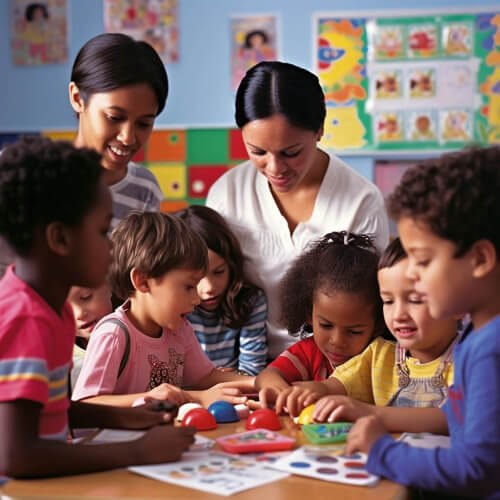 Young children in a preschool setting playing games and with sensory toys while teacher is behind them watching.
Young children in a preschool setting playing games and with sensory toys while teacher is behind them watching.Development of Key Skills
Children acquire fundamental skills that are necessary for later academic success.
This includes early literacy skills, such as recognizing letters and sounds, counting and understanding shapes.
Emotional Support
Early Childhood Educators are trained to offer emotional support, they help children to deal with their feelings and learn to develop healthy relationships with others.
Exposure to Diversity
ECE centre's often have a variety of environments, exposing children to different cultures, languages, and perspectives.
Introducing them early to these environments teaches them to respect others.
What Parents Need to Know About ECE
As a parent, there are several key points to keep in mind when considering early childhood education for your child.
Choosing the Right ECE Center
Look for centers that are accredited and have qualified, caring staff, visit different centre’s so that you can see their environment.
Ask questions about their teaching methods, curriculum and how do they deal with a child’s needs.
Be sure to stick around for a while to see how the staff and children interact.
Ideally, each age group is separated into their own rooms. However, this may not always be the case and the day care still runs quite smoothly.
Understanding the Curriculum
A good ECE program balances structured learning with play. The activities provided need to develop cognitive, social, emotional, and physical skills.
Ask what the daily schedule might look like and what types of activities they will have your child participate in.
The Role of Play in Learning
Play is a central component of ECE. Educational toys and activities are not just for fun; they are essential tools for learning.
They develop language and social skills and help when practicing problem-solving.
Involvement and Communication
Maintain open communication with teachers. Ask them how your child’s day was and if there is anything you can do to help support their education at home.
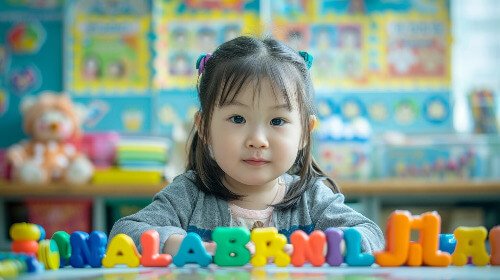 Small girl with letter from the alphabet arranged in front of her.
Small girl with letter from the alphabet arranged in front of her.Importance of Early Intervention
If you suspect your child has developmental delays or learning difficulties, early childhood education can provide early intervention.
ECE educators are trained to work with your child and assess where their problem areas lay. Focusing on these challenging areas early, helping them to improve outcomes.
School Readiness
School readiness is a significant focus of early childhood education. It involves preparing children not just academically, but also socially and emotionally for the school environment.
Academic Preparedness
Children learn basic literacy and numeracy skills, understand the concept of time and routines, and develop fine motor skills through activities like drawing and writing.
Social Preparedness
They learn to follow directions, work in groups, and develop patience and persistence. Having these social skills helps them to adapt to the school setting.
Emotional Preparedness
Children acquire a sense of self, learn to manage their emotions, and build resilience. They also create a love for learning, which can last a lifetime.
Educational Toys and Activities
ECE centers utilize a variety of educational toys and activities to support learning.
Educational Toys
- Blocks and Puzzles: Enhance problem-solving and spatial reasoning.
- Books: Foster language development and comprehension.
- Art Supplies: Encourage creativity and fine motor skills.
Educational Activities
- Story Time: Develops listening skills and vocabulary.
- Music and Movement: Improves physical coordination and balance.
- Science Experiments: Introduce basic scientific concepts and curiosity.
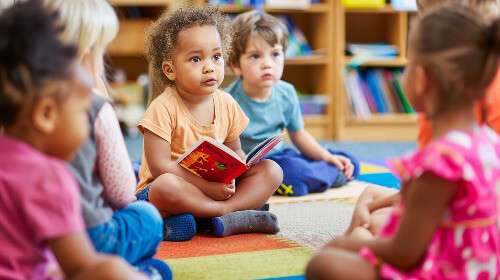 Small children in a preschool setting, sitting in a circle, while one of the girls is pretending to read a book to the others.
Small children in a preschool setting, sitting in a circle, while one of the girls is pretending to read a book to the others.When you invest in your child’s early years, you are setting them up for academic and social success, shaping confident, capable and well-rounded individuals.







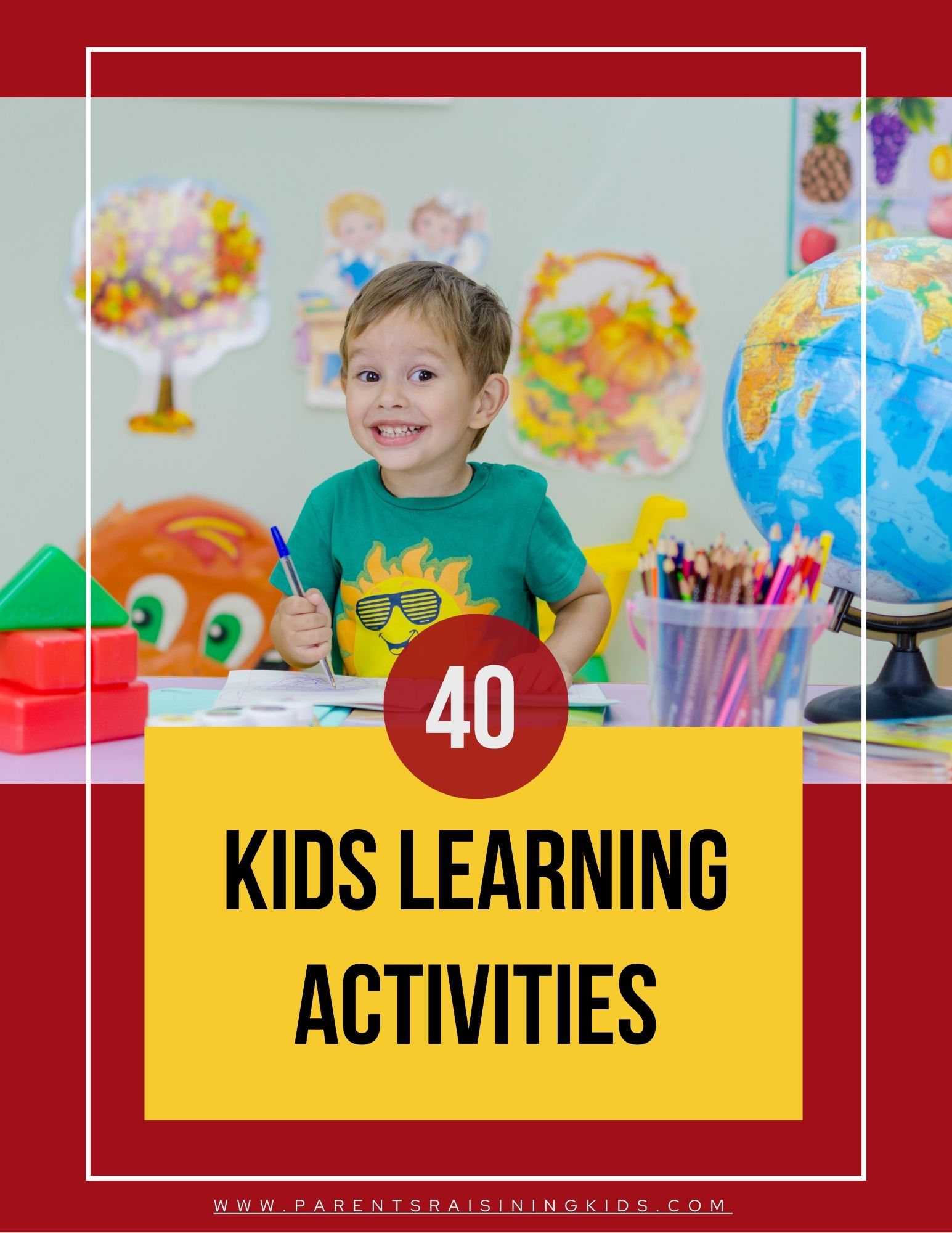
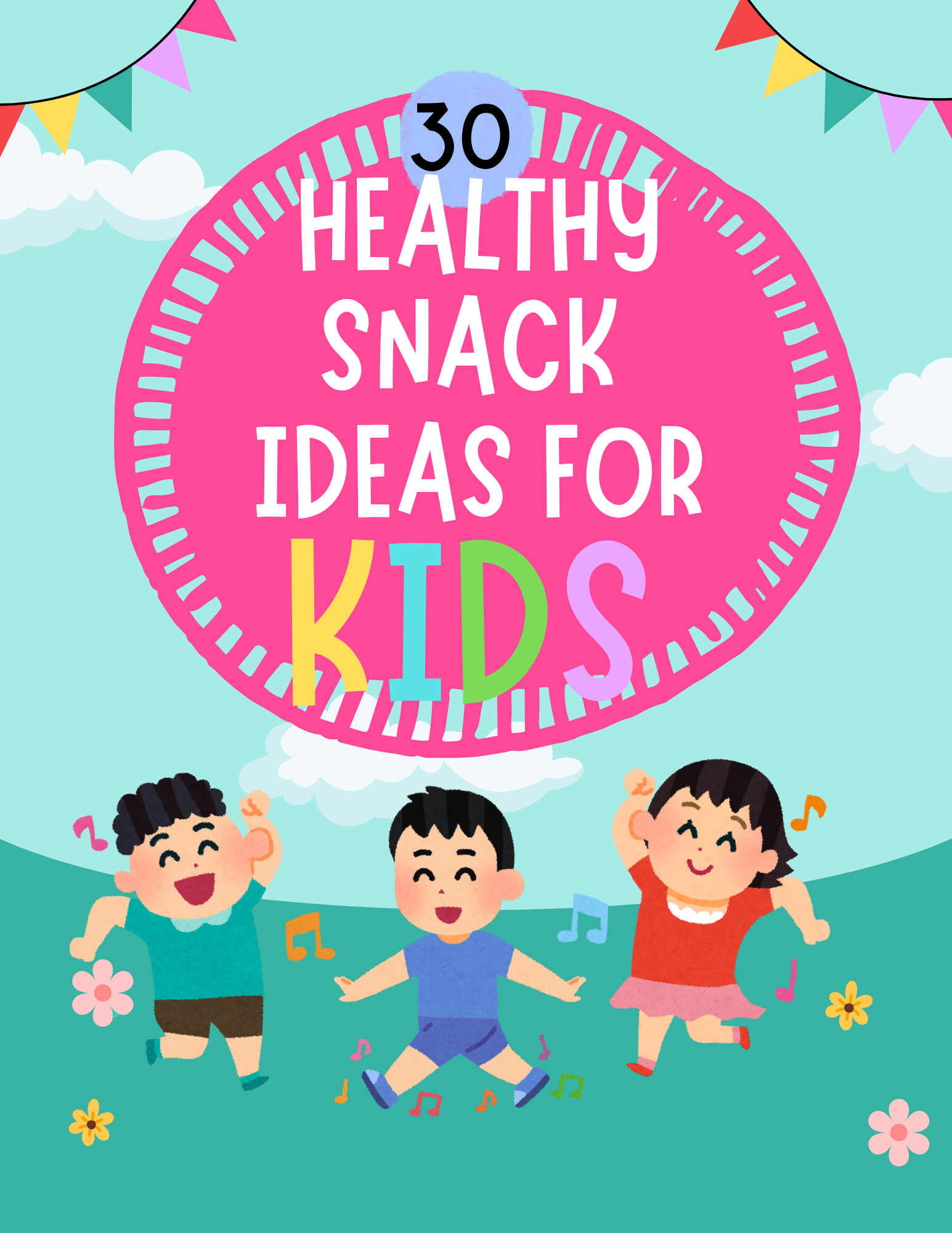



























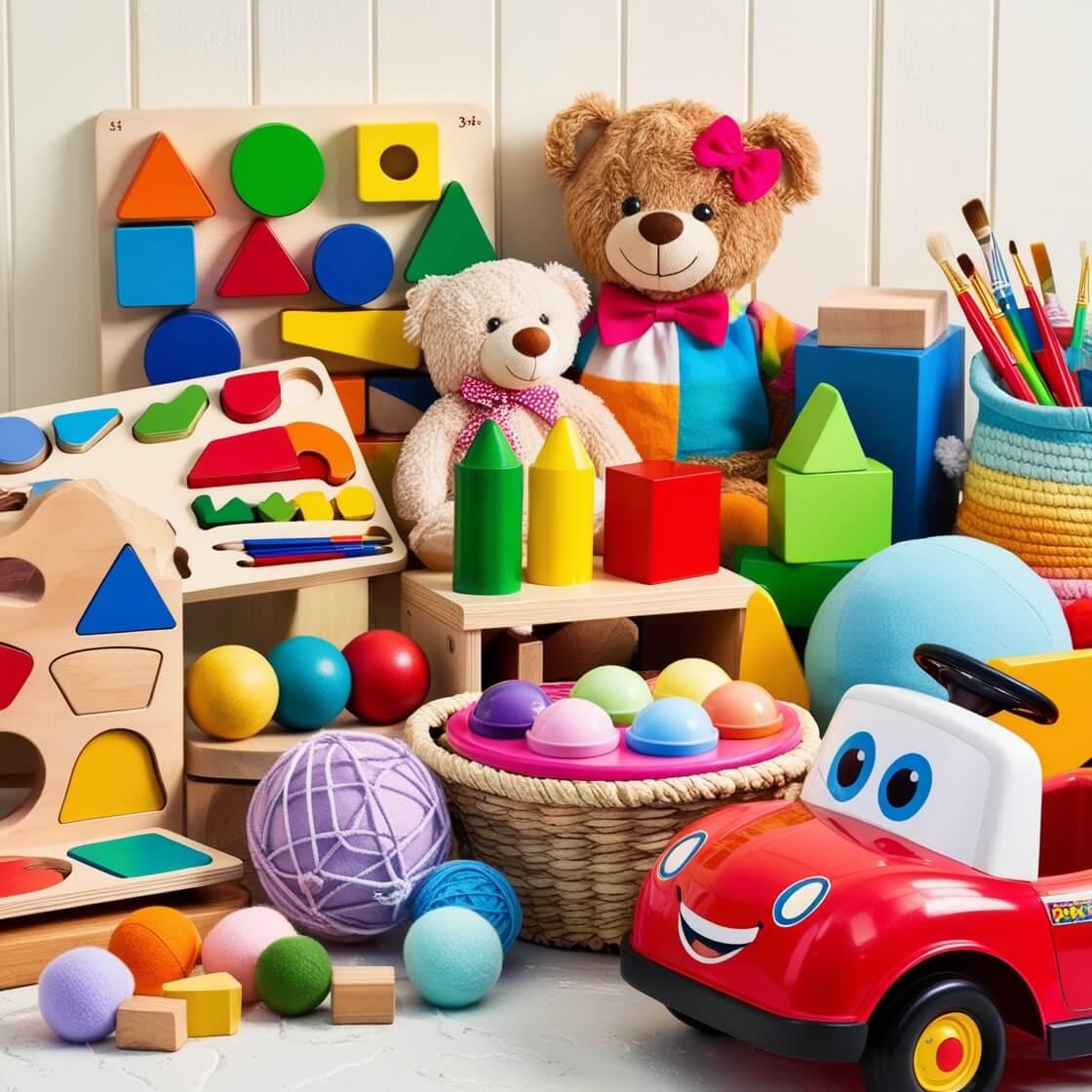

New! Comments
Have your say about what you just read! Leave me a comment in the box below.